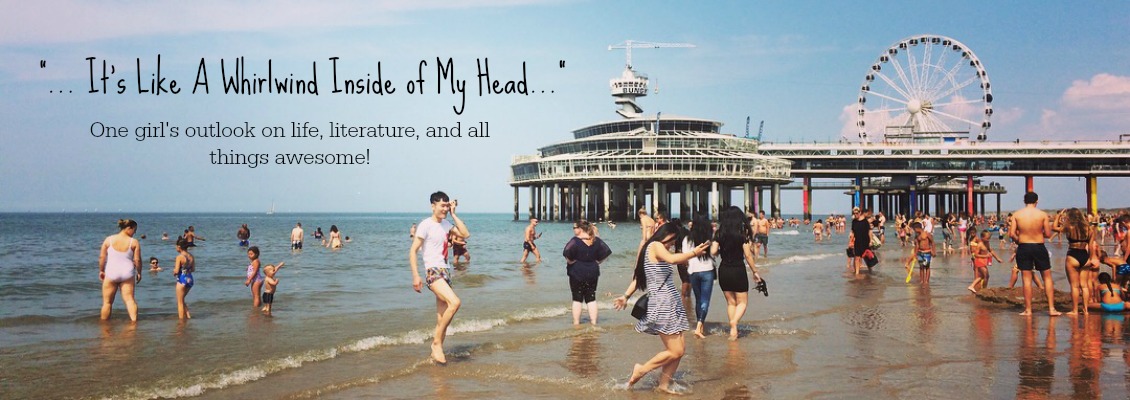"The war against Voldemort is not going well: even Muggle governments are noticing. Ron scans the obituary pages of 'The Daily Prophet' looking for familiar names. Dumbledore is absent from Hogwarts for long stretches of time, and the Order of the Phoenix has already suffered losses. And yet...
As in all wars, life goes on. Sixth-year students learn to Apparate, and lose a few eyebrows in the process. The Weasley twins expand their business. Teenagers flirt and fight and fall in love. Classes are never straightforward, though Harry receives some extraordinary help from the mysterious Half-Blood Prince.
So it's the home front that takes center stage on the multilayered sixth installment of the story of Harry Potter. Harry struggles to uncover the identity of the Half-Blood Prince, the past owner of a potions textbook he now possesses that is filled with ingenious, potentially deadly spells. But Harry's life is suddenly changed forever when someone close to him is heinously murdered right before his eyes.
With Dumbledore's guidance, he seeks out the full, complex story of the boy who became Lord Voldemort, and thereby attempts to find what may be his only vulnerability."
I just love how especially towards the end of the series, J.K. Rowling changes everything. The best part of this book by far is learning more about Voldemort. I appreciate this because it gives humanity to the bad guy. Instead of just fighting him because of the things he did (which of course doesn't change things), Harry and Dumbledore dig into his past. Their goal wasn't really to figure out what happened to him, they were researching what objects or things could be his Horcruxes. But you can't have one without the other. We learn just how effed up of a past and of a family young Tom Riddle he had and how little control he had over his own story. Maybe in better circumstances he could have turned things around and could have led a positive happy life in an effort to spite his family who cared so little for him... but in actuality, Tom didn't have anyone to care about him. The orphanage didn't give a crap about him. I'm not sure what Tom had in the way of friends or friends-as-family when he got to Hogwarts... he had no one because no one showed him he could be better than his violent tendencies. In a way, J.K. Rowling gave us the reasons and background on just why Voldemort became the Voldemort we are so familiar with.
I don't think there is any way that the series could have ended differently or that Voldemort could have changed. But there's a person behind all of this madness and the world wronged him from his first day of life.
This was my biggest take-away from the story. Interestingly, it's not my favorite of the series, but I do appreciate this aspect of the series that doesn't appear anywhere else.
I'll keep it short today. I give 'Harry Potter and the Half-Blood Prince':
Thanks for Reading!
--Jude
As in all wars, life goes on. Sixth-year students learn to Apparate, and lose a few eyebrows in the process. The Weasley twins expand their business. Teenagers flirt and fight and fall in love. Classes are never straightforward, though Harry receives some extraordinary help from the mysterious Half-Blood Prince.
So it's the home front that takes center stage on the multilayered sixth installment of the story of Harry Potter. Harry struggles to uncover the identity of the Half-Blood Prince, the past owner of a potions textbook he now possesses that is filled with ingenious, potentially deadly spells. But Harry's life is suddenly changed forever when someone close to him is heinously murdered right before his eyes.
With Dumbledore's guidance, he seeks out the full, complex story of the boy who became Lord Voldemort, and thereby attempts to find what may be his only vulnerability."
I just love how especially towards the end of the series, J.K. Rowling changes everything. The best part of this book by far is learning more about Voldemort. I appreciate this because it gives humanity to the bad guy. Instead of just fighting him because of the things he did (which of course doesn't change things), Harry and Dumbledore dig into his past. Their goal wasn't really to figure out what happened to him, they were researching what objects or things could be his Horcruxes. But you can't have one without the other. We learn just how effed up of a past and of a family young Tom Riddle he had and how little control he had over his own story. Maybe in better circumstances he could have turned things around and could have led a positive happy life in an effort to spite his family who cared so little for him... but in actuality, Tom didn't have anyone to care about him. The orphanage didn't give a crap about him. I'm not sure what Tom had in the way of friends or friends-as-family when he got to Hogwarts... he had no one because no one showed him he could be better than his violent tendencies. In a way, J.K. Rowling gave us the reasons and background on just why Voldemort became the Voldemort we are so familiar with.
I don't think there is any way that the series could have ended differently or that Voldemort could have changed. But there's a person behind all of this madness and the world wronged him from his first day of life.
This was my biggest take-away from the story. Interestingly, it's not my favorite of the series, but I do appreciate this aspect of the series that doesn't appear anywhere else.
I'll keep it short today. I give 'Harry Potter and the Half-Blood Prince':
Thanks for Reading!
--Jude






